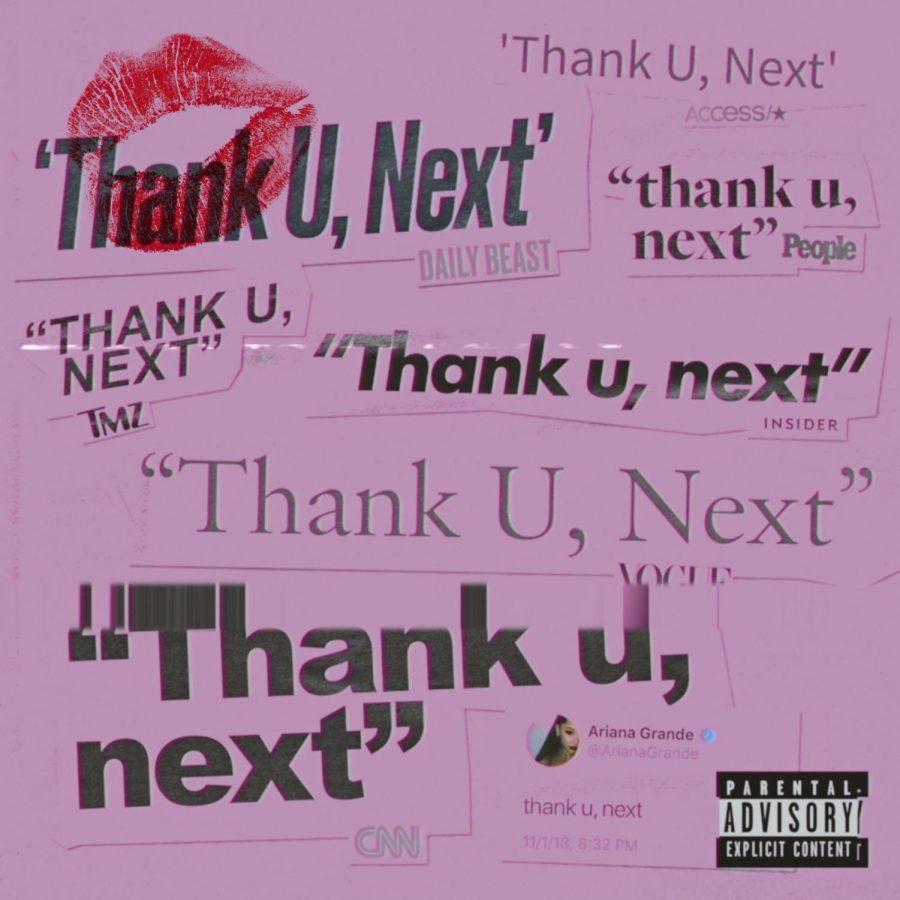When pop superstar and idol Ariana Grande belted, “and her name is Ari, and I’m so good with that” the pop world stopped. Remaining at #1 on the Billboard Hot 100 chart for three consecutive weeks and supposedly “breaking” YouTube, “thank u, next” is undeniably a mega hit. The message of the song is certainly a powerful one: you can be an independent woman; you don’t need a boyfriend to be happy. This message is especially relevant to Grande’s huge mass of teenage fans who may think having a significant other is the most important thing in life right now. What a harmful thing to think, right?! It’s so great of Grande to put it down and show that it’s not the case. Then, the music video came out…
…And the buildup was a big one. Teasers leading up to the release were amassing an absurd amount of engagement from fans and non-fans alike – many knew and loved the song and wanted the video to be released. Breaking the YouTube record for fastest video to reach 50 million views (taking just 24 hours), this video went viral, to put it lightly. Yet again, this is something that we should rejoice over, right? Even more people will get to hear this inspiring message and there is even a visual this time around! Sadly, it’s not that simple.
Grande’s aesthetic, or brand if you will, has remained generally constant throughout the entirety of her career — girly, youthful and relatable. Because of this, it did not come as a surprise when she chose to channel iconic high school movies for the “thank u, next” video. In the video, Grande reenacts scenes from the films “Mean Girls,” “Bring it On,” “13 Going on 30” and “Legally Blonde” – movies that teenagers, along with everyone, can know and love. Being held on a cultural pedestal, these films, like others, are intended to comment on society and Grande’s selections have been especially successful in doing so. That is reflected in the blockbuster success of each. This move was a brilliant one on the part of Grande, as she knew the video would resonate with her teenage fanbase that may idolize and praise these films. One thing that she may have overlooked? The contradiction she has created.
Although they can seem to be in a whole different universe, celebrities are no exception to the media’s influence. They too, are shaped by the media they consume, a notion that can be so clearly identified in the video for “thank u, next.” Cady, Campbell, Jenna and Elle are all portrayed as expressive individuals in their respective films, protagonists whom the audience are supposed to look up to – and they do, as does Grande. One aspect of these films that Grande overlooks is the manner in which the ultimate success of these women is defined: by a boy. At the end of each film, these girls “get the guy” and all is well. Their stories are only complete when they end up with the guy they like. So, while Grande is challenging the dominant narrative by telling girls they do not need a significant other in order to define their success, she is telling this story by remaking films that convey an opposite message.
In writing this, I am not trying to ruin “thank u, next.” Rather, I am inviting you to apply a critical lens when consuming media that you are constantly saturated by. Understandably, your first reaction to the video may not have been the same as mine. This same notion is applicable when watching movies like “Mean Girls,” “13 Going on 30” and so on. We do not inherently try to find everything that is wrong with the media that we consume at first glance, and that is ok. But, when the young girls watching the “thank u, next” video see Grande idolizing characters like Jenna Rink, they are going to look up to those characters too. When they begin idolizing Rink because their idol Grande does, they are being told that if they want to be happy in life and achieve success, they need a boyfriend.
Like I said, most people do not inherently apply this critical lens when consuming media – and not even superstars like Ariana Grande are an exception to this. Since Grande has such a large platform and power to influence, she should certainly be more careful about what message she is putting out, even if it seems harmless on the surface.
Isabel Levin is a Collegian contributor and can be reached at [email protected].



















